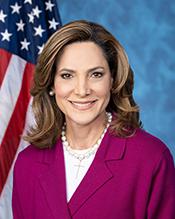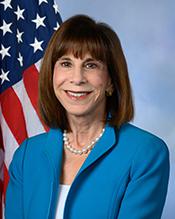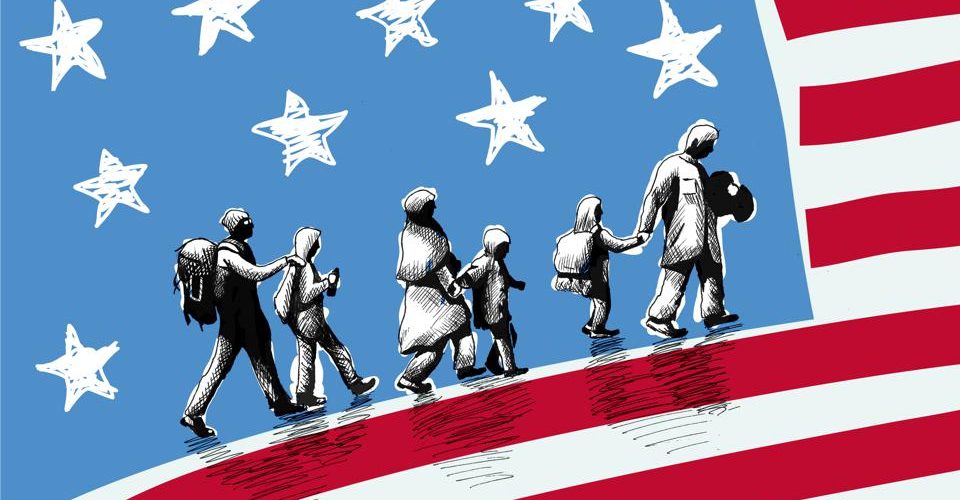
Two members of Congress on opposite sides of the political aisle talked to the business community Tuesday about what they are doing to help pave a path to citizenship for the nation’s immigrants, including millions of employees of all skill levels.
Representative Kathy Manning (D-North Carolina) and Representative Maria Elvira Salazar (R-Florida) spoke about their efforts to provide such an avenue for “law-abiding, tax paying” immigrants during a virtual Common Grounds forum hosted by the U.S. Chambe of Commerce, the world’s largest business advocacy organization.

The virtual series was started this year to routinely bring together one Republican leader and one Democratic leader to find common ground on issues important to businesses and the nation’s economy. The hope is that, over a cup of coffee, the meetings will “brew bipartisanship” among the divided parties to find solutions that are in the best interest of the nation and economy.
Immigration reform is a key goal of the U.S. Chamber and its members, including the Arizona Chamber of Commerce & Industry.
Path to citizenship essential to new economy
Manning and Salazar are each working on new comprehensive immigration reform packages, the Democrats’ U.S. Citizenship Act and the Republicans’ Dignity Plan. Meanwhile, the House already passed two bills last month that call for protections for Dreamers and farmworkers. Manning and Salazar voted in favor of each.
Rep. Manning said the House Democrats newest package is “the kind of comprehensive immigration reform that we have been hoping for since the last comprehensive immigration bill passed — and that was in 1986.”
“When you think about how our economy has changed, how society has changed, how the world has changed since 1986, it makes you realize how long overdue our immigration reform is,” Manning said.
Rep. Salazar said reforms for immigrant employees and their families are essential for sustaining the American economy, which is roaring back to life.
“We have to change the way we encounter the whole immigration world,” Salazar said. “We have to allow for those people who have merit and will be good for the marketplace or whatever business owners in America need at this hour.”
New to Congress, both Harvard educated
Both Manning and Salazar are new to Congress. Both are Harvard educated. And both are members of the House Foreign Affairs Committee.
Congress has not found the will to find common ground on a comprehensive reform package. But the two said they are willing to try.
Despite gridlock on immigration, both parties’ reform packages are similar in many respects.
The Democrats’ U.S. Citizenship Act of 2021
Manning is working with colleagues on the 353-page U.S. Citizenship Act of 2021, which was introduced to both houses in February by the Biden administration and Democrats.
If passed, it would create the largest legalization program in U.S. history, providing an avenue for an estimated 11 million undocumented immigrants to become citizens and expedite the process for farmworkers.
Among the highlights:
Temporary legal status Undocumented individuals who have been in the U.S. for five years could apply for green cards if they pay their taxes and pass criminal and national security background checks. Dreamers, Temporary Protected Status (TPS) holders, and immigrant farmworkers who meet specific requirements would be eligible for green cards immediately. After three years, all green card holders who pass additional background checks and demonstrate knowledge of English and U.S. civics could apply to become citizens.
Stimulate the economy The bill includes a number of measures designed to stimulate the economy such as making it easier for graduates of U.S. universities with advanced STEM degrees to stay in the United States and improve access to green cards for workers in lower-wage sectors. The bill also provides dependents of H-1B visa holders work authorization, creates a pilot program to stimulate regional economic development, gives the Department of Homeland Security (DHS) the authority to adjust green cards based on macroeconomic conditions, and incentivizes higher wages for non-immigrant, high-skilled visas to prevent unfair competition with American workers.
Smarter border controls Funding would be allocated for technology and infrastructure to deploy technology to expedite screening and enhance the ability to identify narcotics and other contraband at every land, air, and sea port of entry. This includes high-throughput scanning technologies to ensure that all commercial and passenger vehicles and freight rail traffic entering the U.S. at land ports of entry and rail-border crossings along the border undergo pre-primary scanning. It also would authorize funding for plans to improve infrastructure at ports of entry to enhance the ability to process asylum seekers and detect, interdict, disrupt and prevent narcotics from entering the U.S.
Funding to assist and negotiate with Central America The bill funds a $4 billion four-year inter-agency plan to address the underlying causes of migration in the region. It would include increasing assistance to El Salvador, Guatemala, and Honduras conditioned on their ability to reduce the corruption, violence and poverty that causes people to flee their home countries.
The Republicans’ Dignity Plan
A few weeks ago, Salazar and other congressional Republicans presented a similar comprehensive package that is in the working stages. It places more emphasis on border security.
In presenting the package, Salazar stated that dignity and redemption must be part of the solution for immigration reform, particularly for hardworking immigrants who have been waiting for years, even decades, for a road to citizenship.
Among the highlights in the Dignity Plan are:
Border security New funding to enhance border security including “an impenetrable border infrastructure system” that would include enhanced physical barriers and new technology to secure ports of entry.
Immediate protection for Dreamers The bill would provide immediate legal status for Dreamers, young adults who were brought to the country as children by their undocumented parents or relatives. The bill provides a 10-year path to a renewable legal status if they have not committed any crimes.
Asylum reform The package calls for cracking down on fraud and abuse within the asylum program and improving processes for accepting individuals fleeing natural disasters, war and other crises in their home countries. In turn, it would enhance enforcement of immigration laws to “ensure criminals are removed immediately.”
Legal status for non-felons The proposal also would pave the way for non-felon immigrants to gain legal status and expand visas for agricultural workers. Funding to assist immigrants to attain English language proficiency is also included.
Mandatory E-Verify The bill would require companies to implement E-Verify in hiring all employees to certify that they are not undocumented citizens. Arizona is one of at least 10 states that require E-Verification for employment.
Employers urged to contact elected leaders
In concluding the forum, Manning and Salazar said business leaders and employers can help get reforms passed by contacting their local and federally-elected officials.
“I think the best way to help is to gather your stories and call your members of Congress and call your senators, particularly call your senators, and tell them what your experience is,” Manning said.
















Add comment